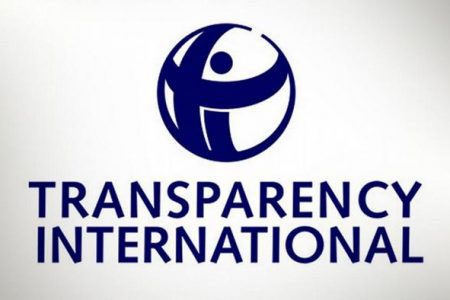United Nations (UN) country representatives are being asked to endorse a new global standard for transparency in company ownership.
The standard would commit all countries to set up national, public registers of companies, disclosing the real individuals who own, control or benefit from them.
The request which has been submitted to the UN General Assembly by Transparency International (TI) has been endorsed by 700 signatories including renowned academics and research centres, companies and business executives, civil society groups and activists as well as several government agencies and public officials, the anti-corruption group says.
With the UN General Assembly Special Session Against Corruption, UNGASS 2021, scheduled for June, a statement from TI today explained that hope is that the appeal is tabled and accepted by those countries represented.
“All parts of our societies around the world have spoken. From Afghanistan to Zimbabwe, from indigenous peoples’ groups to tax justice advocates, from distinguished diplomats to multinational companies, we all agree: anonymous companies are vehicles for corruption and other illicit practices that jeopardise the common good. We are asking country representatives preparing for the UNGASS 2021 to heed this call for urgent action,” Head of the Conventions Unit at Transparency International. Gillian Dell is quoted as stated.
According to TI numerous investigative reports and scandals have shown that anonymous companies enable and fuel corruption and other financial crimes.
They note that the recent OpenLux investigations highlighted the power of public registers of beneficial ownership for identifying suspicions of money laundering, corruption, tax evasion and other criminal activity.
In Guyana questions about beneficial ownership have been raised in relation to the Canje and Kaieteur offshore oil blocks which had been controversially awarded in 2015 under the then PPP/C government.
The Guyana Extractive Industries Transparency Initiative (GYEITI) has in the past attempted to streamline beneficial ownership disclosure measures including identifying and insulating politically exposed persons.
During a 2019 GYEITI workshop on the issue Francisco Paris, who leads EITI’s Latin America and Caribbean division, said beneficial ownership provisions ensures transparency concerning the operators benefitting from the extractive resources sector.
Beneficial ownership involves identifying human owners of businesses; identifying the persons in control; and establishing ownership thresholds, such as, for example, establishing percentage of shares or capital needed to establish ownership.
Paris had explained that identifying the person who owns the company is important as there are often attempts to hide this fact through shell companies and other schemes.
While beneficial ownership is defined at Section 2 of Guyana’s Anti-Money Laundering and Countering the Financing of Terrorism (AML/CFT) Act it is not defined in any of Guyana’s natural resources-related legislation. Additionally there is no law in Guyana requiring companies in the extractive resources sector to disclose the beneficial owner behind the operation, and/or the person or persons who have effective control of the company. Consequently, currently, companies decide whether they provide this information.
This is characteristic of most countries and according to Maíra Martini, Research and Policy Expert at Transparency International though many countries have in recent years made progress towards ending the abuse of anonymous companies there is an overwhelming consensus that fundamental fixes are necessary across the board.
“Criminals and the corrupt must have nowhere to hide their ill-gotten loot. This means universal adoption of public beneficial ownership registers, based on a robust definition of beneficial ownership and accompanied by strong verification processes,” she concluded.





